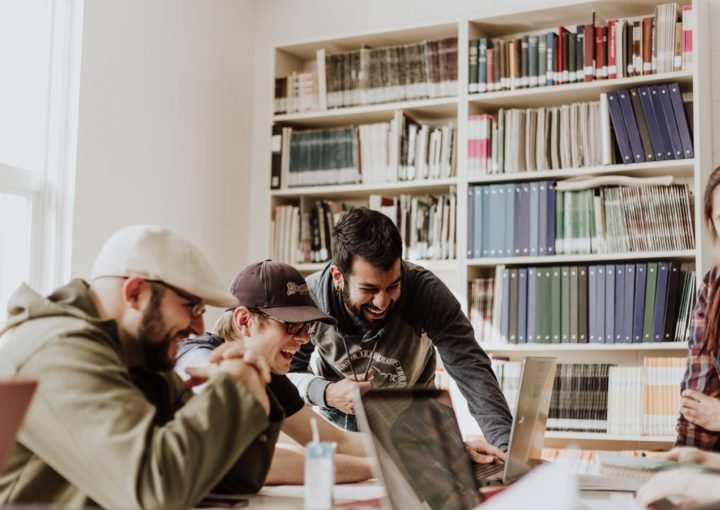Happiness: is going back to school a way to find it?
Hygge? Lego? Or the Little Mermaid? These are all Danish cliches. Don’t get us wrong. We love them (especially hygge). But one of the most important and groundbreaking contributions of Denmark to international thinking and education is the Danish Folk High School. Well, it has nothing to do with folklore education (is there such anyway?). And it is not a high school for teens. It is considered much more than just a school. Danes view it as an institution that helped democratize Denmark back in the centuries and it helps people find their true self.
Curious enough? Read on to find out what is the Folk High School, what’s the concept behind it and how it contributes to the nation’s happiness.

What is the Folk High School?
Let’s say it is a school for adults. It started in Denmark (because of Dane Grundtvig, acclaimed writer) but it soon spread all over the Nordic countries. Many Danes (especially those who have attended it) claim that you cannot really define or describe the Folk High School. It’s like love, inexplicable! There are those who know and those who don’t know (yet). To put it into the right perspective, let’s say that it is a popular school for non-formal adult education. Breaking it down, it is a school that is not part of the official education system in the country but people of 17.5 years of age and above can join to learn, experiment and ultimately discover their passions, talents and who they really are. Almost 2% of the Danish population attends such a school every single year. Wow! Popular, huh?
Who can join?
It is flexible and free-spirited. You can join if you have graduated from the official high school but you still don’t know what to study. Or you have graduated from university but you are not quite ready to join the workforce. Or even you simply want to take a break from studies or work and explore more about yourself. Danes and foreigners can join these schools. The mix is very multicultural and diverse, that makes them a unique place for learning and experimentation.

What do students learn in Folk High School?
This is the good part. You are free to choose the subjects you like or you want to experiment with. From sports and environmental studies to visual and performing arts. And from human rights and languages to global politics and self-expression. That is one curriculum to envy. The idea is to learn about many subjects, grow as a person and ultimately find what can make you happy. Perhaps you can pursue studies or a career in this subject after attending. Or you may realise you need to make a career change. All are on the menu!
How is it different from formal high schools?
This is the even better part of all this. Check it out:
– no grades, marks, exams
– teachers are free to teach whatever they want and experiment
– students make the classes and lessons, in collaboration with their teachers
-they all live and eat in the school, together (like a boarding school)
-they all take care of the school together, like cleaning, cooking and maintenance

Which Nordic values are behind this concept?
The Danish Folk High School is one of the best examples of Nordic culture. It started in rural areas of the country, in the 18th century. It was a way to educate the lower social classes of that area in things like critical thinking, social issues and democracy. Many claim that Denmark’s democratic society is because of the introduction of these schools. This institution embraces most prominent Nordic values.
– Togetherness and trust. They all live under the same roof and share their lives for as long as these courses take place. Students trust teachers in their expertise and free-minded approach. Teachers trust their students that they bring in the best of their life too and contribute to the success of the classes.
– Equality. Everybody is equal. They all (including teachers) clean the school together and share the responsibility of running the school smoothly.
– Innovation. The educational approach is revolutionary. Everybody is part of the lesson, that is being made during the class, via the interaction between students and teachers. Dialogue is essential.
– Freedom of expression. Everybody has the right to voice his / her different opinion or perspective. This is not only tolerated but actually encouraged.

Is there a link to happiness?
Absolutely! Freedom is one of the factors that can have a huge influence on our short-term and long-term happiness. Freedom of choice, freedom of expression but most importantly freedom to be who you really are and live your life the way you want to. The great idea behind these schools is to make people discover their true self. Some people need a break from their life, in order to do that. Others know but still, they want to try different things and settle with what resonates with them the most. Whatever the case, helping people be themselves can really have a huge impact on their happiness and the happiness of the whole society.

